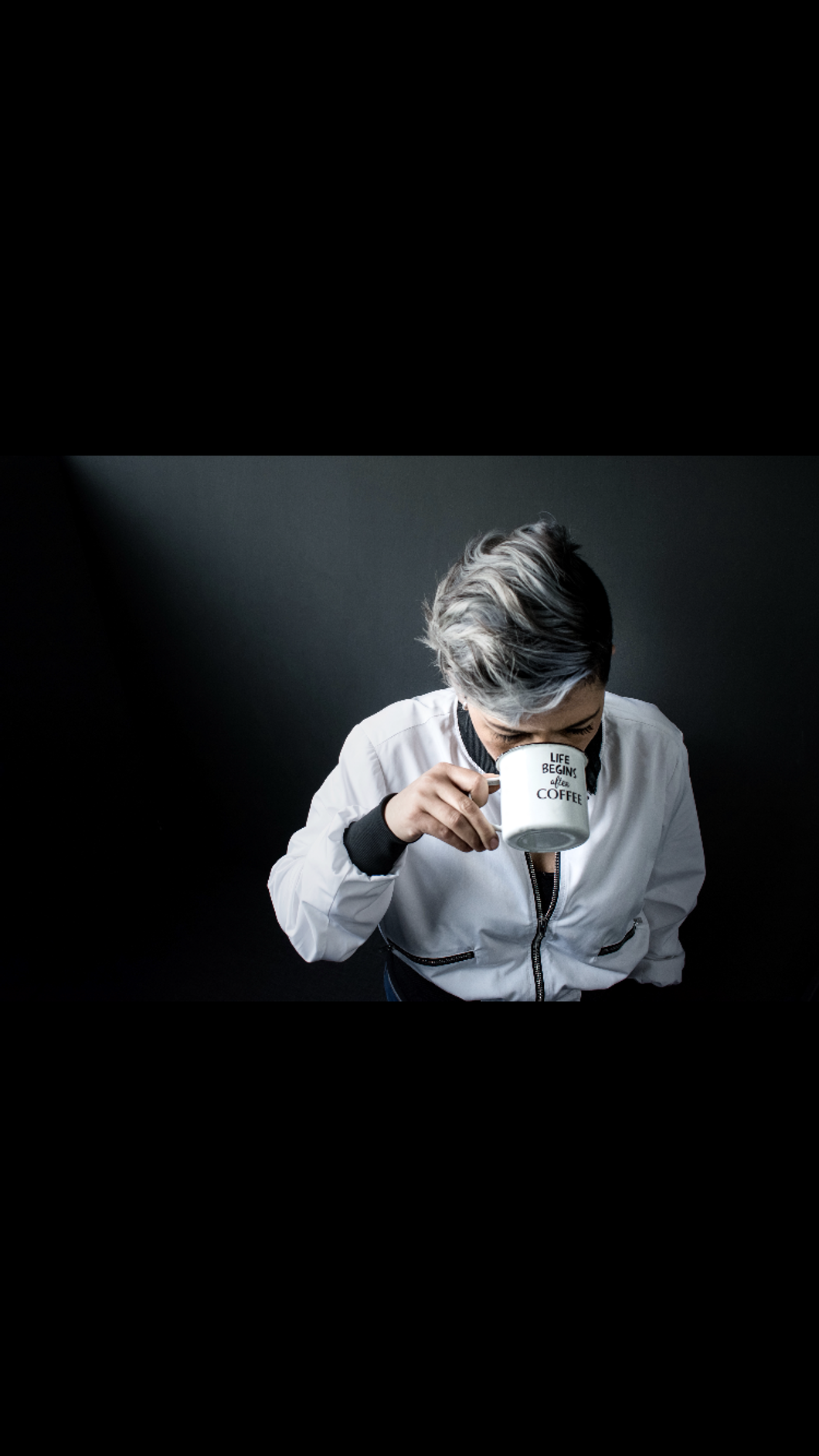It started off innocently enough. I remember the day like it was yesterday. I was five years old and I sat atop my aunt's lap on a cold evening, as the family was finishing off dinner with dessert and cups filled with black looking water. As a child, I stared at the steaming, hot cup, wondering why in the world someone would want to drink black water. I distinctly remember my aunt saying (as I earnestly stared perplexed by this concept of steaming 'dirty' water), "baby, do you want to try?" She carefully held the cup, which had cooled down significantly enough for my curiosity, and then it happened, my first sip of coffee.
And sure enough, you know what happened? I hated it. What other reaction could possibly be expected from a typical five-year-old? I spit it out just as quickly as most imaginable 5-year-olds. I uttered the following words in that moment, which amuse me to this day, "Ewwwww grossssssss. That's not good. If grown-ups drink that, I'll never touch that when I become a grown up!"
Fast forward twenty some odd years later, to my first year in the Navy. Suddenly the presence of this 'black liquid' aka 'coffee' was the staple of every meal of every day in basic training, and people drank black coffee as if it was water. Running on fumes and less than 3 hours of sleep every night in boot camp, black coffee suddenly provided my body the life force to co-exist among other humans and even allowed my brain to function in a semi-normal capacity. Two cups turned into four cups per day, and suddenly waking up at 4 AM didn't seem to phase me all that much.
Days, years, months passed by and while the taste of coffee became obsolete and unappealing for me, the lifeforce of caffeine flowing through my veins did not become any less necessary. Evolving into a more concentrated form of coffee, I converted over to a 'thermogenic' as they regard it in the health and fitness world, not only for the means of working out but as a means of satiating my caffeine intake and maintaining survival of long work days, roughly to the tune of 600mg caffeine (consumed in the form of one pill, only once per day).
Most people are familiar with caffeine as a stimulant, a central nervous stimulant, which many in fact may not know exaggerates the stress response of the body, providing an overstimulated response to the nervous system and simultaneously reacting with the brain's chemicals as a memory booster and catalyst for speeding up reaction time. There have even been studies to associate caffeine intake with a decreased risk of Alzheimer's disease. Caffeine also inhibits pain receptors called adenosines, inducing the dopamine in our body (which alleviates the feeling of those back aches and pains.) As with any other substance, with the benefits come disadvantages.
It is estimated roughly 54% of Americans over the age of 18 consume caffeine on a daily routine and estimated that 3 out of 4 individuals may potentially be addicted to it as a substance. An overdose of caffeine may lead to manic episodes, disorientation, and/or panic attacks.
The effects of caffeine on the brain have been noted to specifically trigger the same dopaminergic mesolimbic brain for dependence and a reward system at low dosage. Drugs such as cocaine, morphine, and nicotine have strikingly similar effects. Although by medical standards, caffeine cannot be considered a 'drug of independence' but rather a psychoactive drug.
In 2013, an updated edition of the Diagnostic and Statistical Manual of Mental disorders, released by the American Psychiatric Association classified caffeine withdrawal as a defined syndrome for the first time.
Studies of decreased caffeine reduction have indicated an increase of cerebral blood velocity, correlating the symptoms of caffeine withdrawal with drowsiness, headaches, and migraines, irritability, and muscle tremors, which may last 7-10 days or longer, and decreased alertness. However, studies have provided no evidence to substantiate decreased mental or intellectual performance.
It's a first world epidemic. So, maybe we should ask ourselves if the cost of maintaining our caffeine indulgences is worth the worst migraines and headaches of your life otherwise, without it. (Spoken from personal experience of someone who is very currently trying to wean my body off of caffeine) [Whimpers- Literal migraine from hell]. In the decision between ALL or NOTHING, which way do you lean?




































